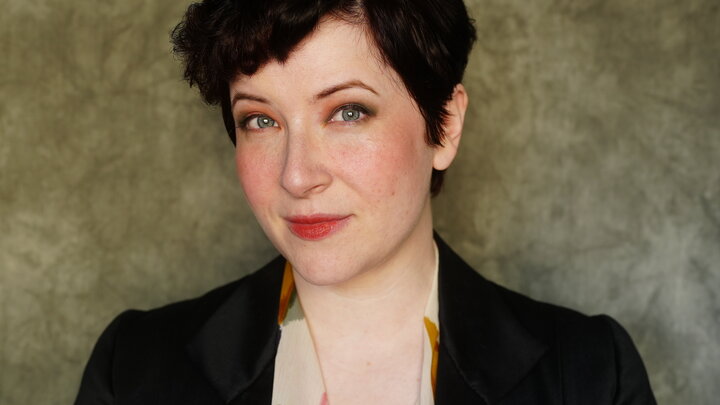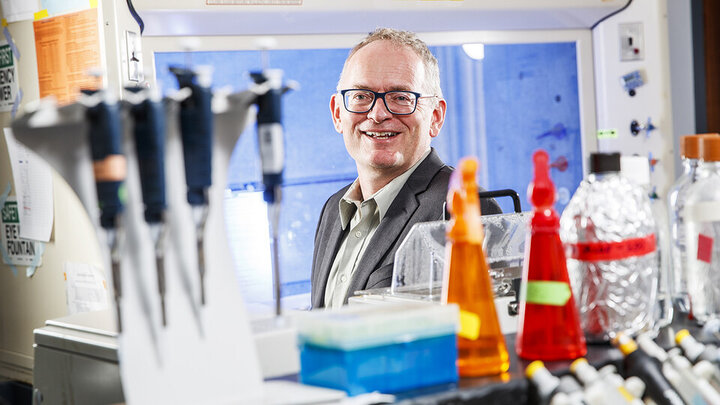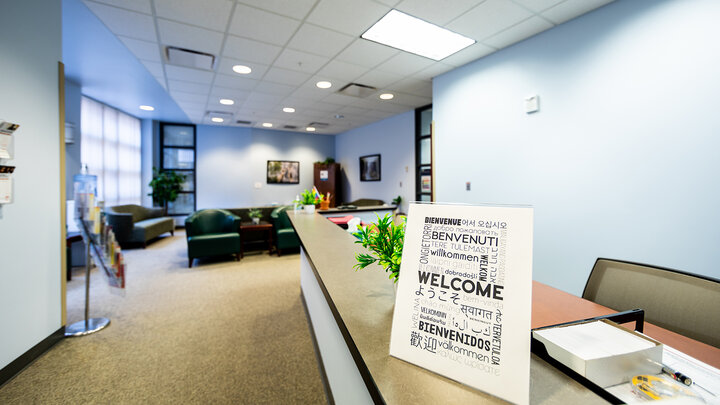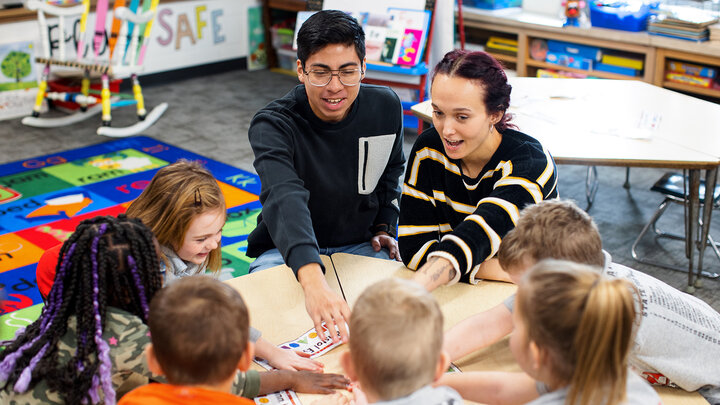Meet Nicole Rudolph, a fashion historian transforming how we understand the past—and its influence on the present. A 2019 graduate of the Textiles, Merchandising, and Fashion Design master’s program, Nicole has built a thriving career educating audiences on historical fashion’s role in shaping society.
Her journey began with an undergraduate degree in Theater from Ball State University in Indiana. From there, she worked at Colonial Williamsburg, the largest outdoor educational living museum, before pursuing graduate studies in Nebraska to deepen her expertise in Material Culture and Textile Studies. Today, she shares her knowledge through her social media platforms—Instagram (@thenicolerudolph) with 77k followers and YouTube (@NicoleRudolph) with 230k subscribers—where she explores the connections between historical fashion and modern culture.
In this interview, Nicole reflects on her fondest times in the TMFD program, offers valuable advice for current students, and shares how her career has evolved since graduation.
Q: How would you explain your career as a Fashion Historian to someone that doesn't know what you do?
“The way that I very often present myself is that I teach history first and foremost. I just don't teach it in a traditional classroom setting. I am teaching online to whoever wants to show up at whatever time they want to show up, which is a really great opportunity in the fact that I get an audience that is almost always happy to be there... it's great to be able to reach out to people and teach people about some of the more complex and difficult parts of history that we've forgotten about. But doing it through the lens of clothing and fashion…”
Q: What does your day-to-day life look like with your business and how do you go about creating your content?
“My days are usually split between a lot of different things just depending on how I'm feeling that day and what time of day it is. So, most days I'm not filming. It's more a lot more time put into research and editing. The videos that I'm putting out on topics usually take about 3 or 4 days to really get research, get a script together. It's really fast to film them because you have to sit down for about an hour and talk to the camera once I've got everything ready to go. But then it can take up to like a week to actually edit them. In between different videos for me is spent editing and prepping that sort of work. Also, lots of emails and business meetings and occasionally I get to throw a project in there and manage to actually make something, which I haven't done as much this year, but every once in a while, I get to.”
Q: How has your education and work experience led you to find this opportunity?
“My time at UNL with Graduate School and Material culture and all of the process that I went through for my masters was learning how to do in depth research, learning how to take that and make a story out of it and understanding how to present that really big massive amount of information. But also, the sheer amount of knowledge that I gained that I didn't realize at the time, just from classes that were on topics that I didn't think were going to be that essential to me.”
Q: What classes best prepared you for the real world that you took at UNL?
“I took so many amazing ones, Dr. Claire Nicholas (former professor) did amazing job of just preparing me for so many different ranges of research and the way of looking at people and an individual class that I was able to take from her.
In terms of the classes... some of the ones that I think surprised me most were the ones outside of the department that I didn't expect to be as beneficial, like the economics and gender, which just totally changes your world view of how we understand value in our work, in ourselves and so many things. That was a big eye opener, not just in terms of economics, but life in so many ways.”
Q: What are some things you didn't think you'd be doing that you're now doing in your career?
"I’m always thinking, how did I get into this?, I don't know social media much. It's new, it's such a new thing. Social media as a job is really only something that has been viable for anyone for like 10 years and for the larger quantity of people for the really the last five. The biggest recommendation I give with that is just, I knew that I wanted to do research and share that with people in some format or another.
...It is never what you hope it is. Instead, I was thought, what do I want to get out of that? And that was; I want the chance to do research and discover new things and share that with people and help us understand our current world better by understanding all we got here and sort of lightening that load off of people with lots of different situations. And so social media has become the easiest way to do that.”
Q: What opportunities do you recommend students take advantage of in the department?
“One of the things that I didn't realize as much when I was an undergrad as I started to learn when I was in Graduate School, is how connected the faculty is to other people, other faculty, other professionals, previous students that they've had in other places and how important those connections are. So, if you have even an inkling of interest in an area, go talk to the faculty and develop a relationship with that because they might know people in other places in other weird ways. Because so much of what you need when you get out of the university situation is going to be connections. It's going to be people that are professionals or work in different places can answer some questions or maybe even get you a job and go to as many conferences and things like that as possible.”
Q: What are some of your favorite memories from the TMFD department while you were in the graduate program?
“So many of these because, I was there for three years and it was such an incredibly fun experience to get to go back to school when I was older, it was a great experience because I had a very different view on things. We had a solar eclipse while I was there, and everybody gathered out on the green watched it and that was really cool.
But in my final year there, I helped with actually just getting to set up the little exhibits and finding out how much stuff was right in that tiny little collections room of all the like antiques, vintage things and all of that. And getting to filter through there and pulled through it. I ended up doing a lot of organization while I was there...But one of the exhibits that we put up was a bunch of quilts by a woman from India who quilted, it was images of doing more traditional things, sewing and quilting sorts of things that were still being done. And so she incorporated all those and we got to not only do that, set up the mannequins and one of the other professors came in and helped teach us about how saris were draped and the different areas, the different regions that using different sort of techniques and things like that.
And we did a similar exhibit at the one of the museums downtown where it was set up by the immigrant population and show some of their own crafts and skills...they actually clinically set up a whole series of classes for the women to earn crafting skills. So, they could kind of start their own Etsy or things like that... And they taught them all of these business things... So it was just, it was really great to connect with the community and other backgrounds that I didn't have a bunch of experience with and learn about all those things while getting to actually physically do something with it. So that was one of the greatest experiences was getting to work with those different exhibits.”
Q: What advice would you give students that are about to go into the workforce?
“I kind of talked about this already, but it's the don't have a dream job. It's never going to work out, I'm not gonna say never, never, but really it's not. I thought I did. I did not multiple times... one of the first jobs I ever tried for out of college was so competitive and it made life miserable for so many people trying to get that job. And then the job was not the dream job and it just a whole big mess. So it's one of those things where the best thing to do is not to think I want that exact thing, but to sort of think what do I want to accomplish? What do I enjoy doing?
Sometimes it is do what comes naturally. Do what you find easy. You have other time outside of your job to also do what you enjoy... you don't want a job that you have to fight to accomplish... so think about what do you want to accomplish? What will make you feel like you've done something?
Q: Do you have any closing advice or remarks about the program or just your career in general, that you would want like students that were like in undergrad to know?
“I just honestly was surprised at how much the department had in terms of the variety, everything from the Super science-y technical stuff to all of the resources for the antique garments and for the magazines, the library stuff. I was very impressed at just how much there was available...And then of course, the faculty is just such a wide range of specialties and everyone's very enthusiastic, helping you with whatever you're interested in ...have a core message of what you want to do and then just follow where it takes you. It's going to be weird and just you'll be much happier if you don't have one single end goal, right? You have multiple. Be flexible.”
You can follow Nicole on YouTube @NicoleRudolph on Instagram @thenicolerudolph




